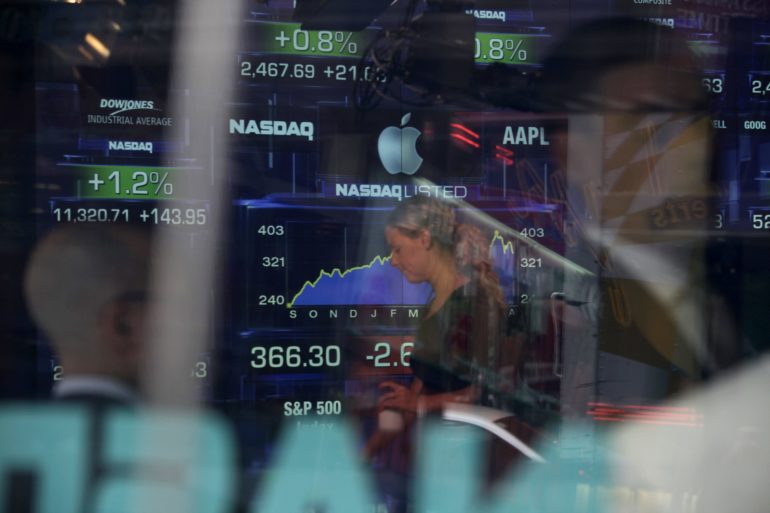September has been a tough month for traders overall, but a perfect storm left Big Tech stocks, a sector that normally leads the market, with losses.
“It’s been a ‘Nightmare on Elm Street’ month of September for tech investors,” Dan Ives, managing director at Wedbush Securities, told CNBC.
The Nasdaq, which gets about 40% of its value from just a handful of technology stocks, lost more than 5% in September. At the same time, the S&P 500 has dropped nearly 4%. The Dow Jones Industrial Average has lost more than 2% since Sept. 1.
Apple, which had managed to weather the Covid-19 pandemic and posted impressive results in its fiscal third quarter, closed down 10.25% from the closing price on Aug. 31. It’s a stark contrast from its September performance in 2019, when the stock gained just over 7%. Google’s parent company Alphabet traded down 10% for the month, and Microsoft closed 6.74% lower. Last September, they added more than 2% and nearly 1%, respectively.
Tesla this month closed nearly 14% lower, while Netflix closed down 6%. Last year, Tesla added 6.76% in September and Netflix dropped nearly 9%. Meanwhile, Amazon and Facebook closed down 8.76% and 10.68% this month, respectively. In 2019, Amazon closed down the September month just over 2%, while Facebook closed down more than 4%.
‘Many elements’ caused the decline
“There were many elements in the market this September that aligned themselves to basically go from an overbought situation for the mega cap tech names to become oversold,” Chief Market Strategist for Prudential Financial Quincy Krosby told CNBC.
Since March, investors had been pushing the markets to new highs, led by megacap technology as stocks like Netflix and Amazon outperformed as Americans quarantined at home.
But September brought fears of a dot-com-like tech bubble and continued worries around stock valuations being too high, Ives said. For example, in mid-September, Barclays said the technology darlings’ stock valuations are at their 2000 dot-com peaks, forcing the analysts to downgrade the FANMAG sector to market weight given the valuations.
Ives also pointed toward the general sentiment of a risk-off market as “putting a speed bump” in the tech rally.
The upcoming election raises concerns around privacy, potential antitrust regulations and the possibility of a tech breakup. Sam Stovall, chief investment strategist at CFRA, told CNBC on Tuesday that the overall market may not view a Joe Biden presidency as negative, unless there’s a Democratic sweep, since it would be more difficult to enact legislation to raise corporate and capital gains taxes.
Krosby said Wall Street will also be watching if China retaliates against the United States for its attempted bans on WeChat and TikTok, two widely-used apps. Apple, for example, has about 20% revenue exposure to China, according to an HSBC estimate.
Stocks could rebound on strong Q3 earnings reports
The fourth quarter of 2020 will likely be choppy, Ives said, due to the U.S. election, a potential Covid-19 vaccine or surge in infections and how companies’ third quarter earnings go.
“There’s still opportunity for a rally, but a lot of it’s going to hinge on [third-quarter] numbers,” Ives added. Still, he said he’s optimistic that “the fundamental drivers are going to be much stronger than the Street is anticipating.”
September’s drop is also not an immediate cause for concern. Krosby said she views the decline as proof the market is working as it should.
“You need to have a sense that the market is working, that the mechanics of the market is working,” Krosby said. “There’s something about a market that keeps going up. The reaction is, ‘is this 1999 all over again?’ because it conjures up a period of a fantasy that ended very badly.”
“Again, it’s healthy to see the market come down and burn off the frost. And it’s a process,” she added.
